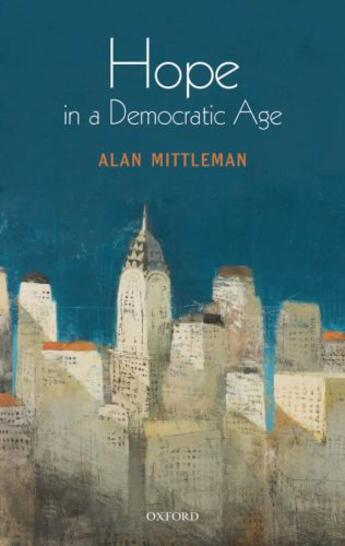-
Nombre de pages : (-)
-
Collection :
(-)
-
Genre :
(-)
-
Thème :
Non attribué
-
Prix littéraire(s) :
(-)
Résumé:
How and why should hope play a key role in a twenty-first century democratic politics?
Alan Mittleman offers a philosophical exploration of the theme, contending that a modern construction of hope as an emotion is deficient. He revives the medieval understanding of hope as a virtue,... Voir plus
How and why should hope play a key role in a twenty-first century democratic politics?
Alan Mittleman offers a philosophical exploration of the theme, contending that a modern construction of hope as an emotion is deficient. He revives the medieval understanding of hope as a virtue, reconstructing this in a contemporary philosophical idiom. In this framework, hope is less a spontaneous reaction than it is a choice against despair; a decision to live with confidence and expectation, based on a rational assessment of possibility and a faith in the underlying goodness of life.
In cultures shaped by biblical teaching, hope is thought praiseworthy. Mittleman explores the religious origins of the concept of hope in the Hebrew Scriptures, New Testament, rabbinic literature and Augustine. He traces the roots of both the praise of hope, in Jewish and Christian thought, and the criticism of hope in Greco-Roman thought and in the tradition of philosophical pessimism. Arguing on behalf of a straightened, sober form of hope, he relates hope-as-a-virtue to the tasks of democratic citizenship. Without diminishing the wisdom found in tragedy, a strong argument emerges in favour of hope as a way of taking responsibility for the world. Drawing on insights from scriptural and classical texts, philosophers, and theologians - ancient and modern, Mittleman builds a compelling case for placing hope at the centre of democratic political systems.
Donner votre avis














